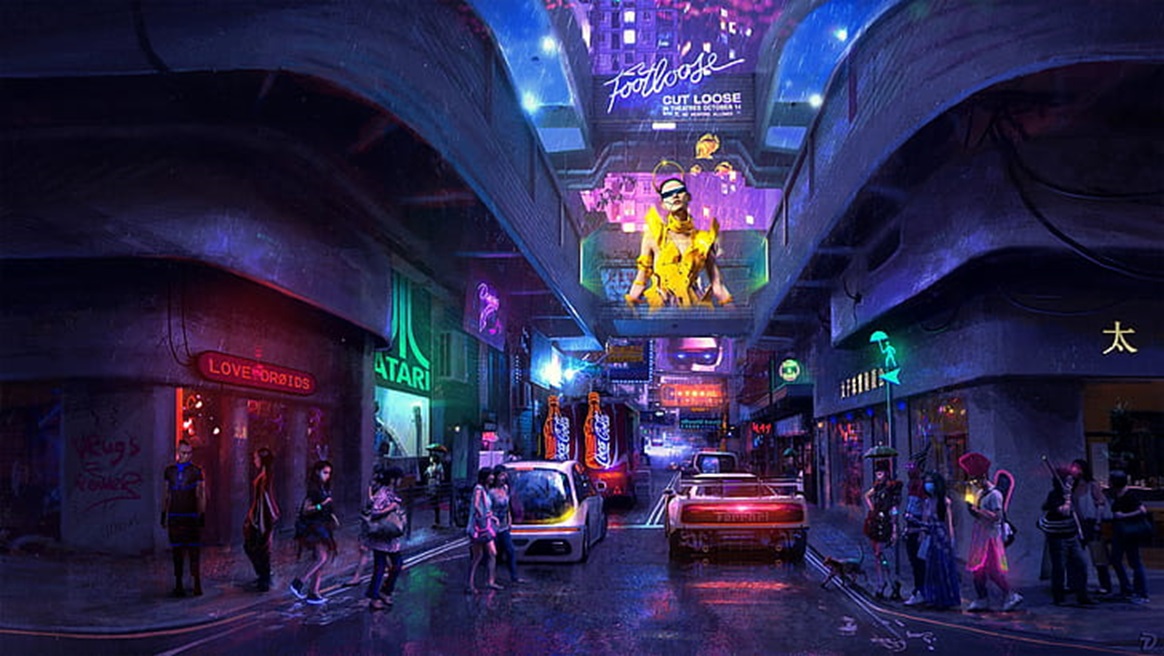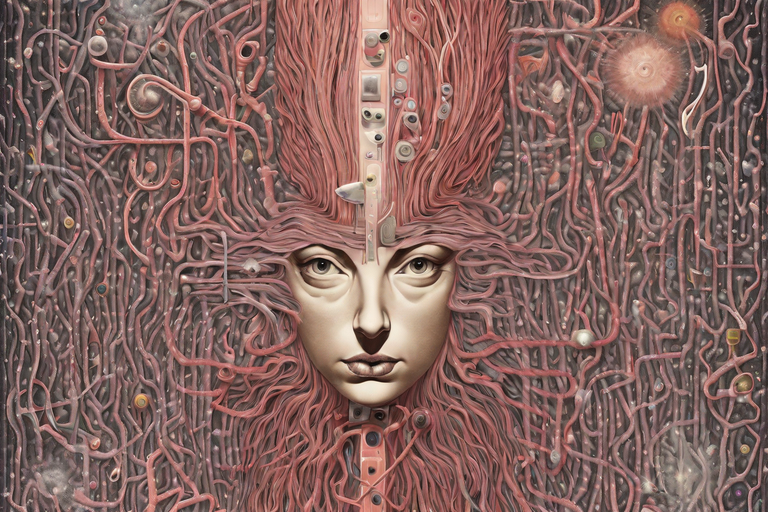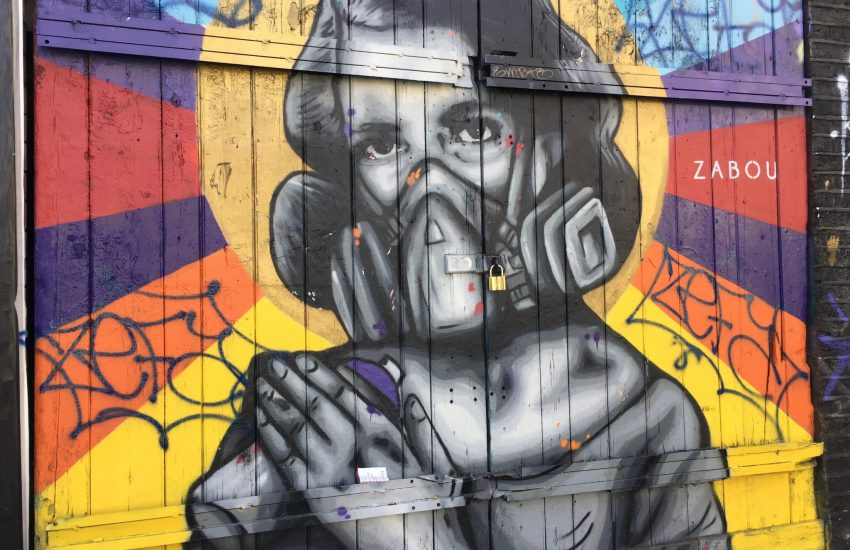When being decays into non-being (or pseudo-being) it does so amidst a plethora of thoughts. Thoughts are then all we have left – thoughts about this, thoughts about that, thoughts about the other.
These thoughts constitute the ‘non-being’ (or ‘pseudo-being’) that being has decayed into – thoughts are what make it up. This is what the pseudo-being is – it is a whole bunch of thoughts. It is a plethora of thoughts – thoughts about this, thoughts about that, thoughts about the other….
Once being has decayed into a mass of ever-proliferating thoughts then we have no choice but to think them. We have no choice but to think them and then go on thinking them. Thinking the thoughts is compulsory – we don’t have the option of not thinking them. That’s the name of the game: its thinking, thinking, thinking, all the way. It’s thinking thinking thinking and then after that its some more thinking, followed by a bit of extra thinking on top!
The thinking is compulsory because if we ever stop then the silence that follows shows up the unreality of the thoughts, the emptiness of the thoughts, the hollowness of the thoughts, and that is not something we like to see. To stop thinking is to give the game away and the first rule of the game is that You must not give the game away. This is what Baudrillard is saying when he says that TV broadcasting has to be continuous because if it isn’t – if there is a gap – then we get to glimpse the horrible vacuity behind it. In the same way, Baudrillard implies, any gap, any discontinuity, is enough to show up the frightening vacuity of thought – or as he puts it, the hyperreal.
The reason we’re ‘hooked on thinking’ is because it’s all we’ve got. It’s all we’ve got to believe in, all we’ve got to hold onto. Reality has been substituted for us by pseudo-reality (by Baudrillard’s hyperreal) and so we can’t afford to see it for what it is. We need the illusion because now we have got nothing else. We’re reliant on the pseudo-reality, dependent on it, addicted to it. It gives us our sense of security about who we are and about what the world is – it gives us rigid black and white descriptions that we can hang on to, just as a fundamentalist believer can hang onto his literal nonsensical dogma. Pseudo-reality is a fiction, a lie, a hoax, but we are addicted to its fictional version of the truth because truth itself has now been done away with. Unless we keep on thinking, therefore, the fictional version of ourselves ceases to exist and the ‘fictional or phoney version of ourselves’ is all we’ve got.
We think ourselves into existence every day, and once we’ve thought ourselves into existence then we have to keep on doing it. We can’t ever stop. It’s compulsory – we just don’t have any choice in this! The reason we don’t have any choice is because we’re mortally afraid of losing the fictional version of ourselves that we are clinging so tightly to. Fear drive us on and on. It is because what we are clinging to is fake that we are compelled to cling to it so tightly – if it wasn’t fake we wouldn’t have to cling. Or to put this another way, it is because we are dependent upon a fiction for the feeling that we exist that we are so terrified of non-existence.
Not-existing is thus the ultimate terror it is in order to hide from this terror that we have to go on thinking, go on fictionalizing. It could be said that we are ‘playing a game’ by clinging to our thoughts and the rule in this game is that we should carry on existing. The rule is that we have to carry on existing, no matter what. This is what Alan Watts calls ‘the game of black-versus-white’, which is as Daniel Hand says here a ‘broken version’ of the game of black-and-white:
For Watts, the task of aligning with nature and our genuine self requires a basic awareness of “nothingness.” By fearing void and nothingness, or the “cosmic background,” Watts thinks we’re playing a broken game of “white-versus-black,” when the greater picture is one of “white-and-black.” Form cannot exist without nothingness; foreground is inseparable from background. …
…Death and life are opposite sides of the same cosmic coin, Watts reiterates, and anxiety around death is in part a result of ‘forgetting’ this oneness.
We all know this game (the game of black-versus-white) very well. We know it very well because we play it just about all the time. We practically never don’t play it! Playing it is practically all we know. And yet even though we know this game very well we aren’t at all aware that we are playing it. We take it for granted. We aren’t able to question it – we don’t have the wherewithal, the mental freedom, to question it. We don’t know that it’s possible to question it. The thought of questioning it just never occurs to us. For us this ‘black versus white’ business is simply a brute fact of reality – it is reality. It’s just ‘the way things are’ and so we have to try keep up to speed with it as best we can…
The thing about a game (any game, if we were to use the term in a strictly technical sense, i.e. meaning a ‘formal system’) is that there’s no freedom in it. That’s what makes it a game – the lack of freedom is what makes it a game. What makes it a game is the both [1] the lack of freedom to do anything other than obey the rules of the game, and [2] the lack of freedom to question this set-up, the lack of freedom to see that there could be some other way of doing things. It is this absolute, stark lack of freedom (this brutal compulsoriness) that makes the game a game and not real life – which always contains freedom. A formal system is always devoid of freedom, just as unsimulated or unformalized reality is composed – by virtue of the fact that it is real (or uncontrived) – of nothing else but freedom, albeit freedom that is sometimes in disguise.
The compulsory nature of the game is not in any way humorous – it is starkly black-and-white, starkly ‘either/or’, starkly digital. Either you obey or you don’t obey, either you get it right or you get it wrong, either you are deserving or undeserving, accepted or unaccepted. Either you are saved or you are lost. Either you’re good or you’re bad. So in the pseudo-reality the essential humour of reality has been converted into its utter antithesis. It has been converted into brutal humourlessness, into stark necessity. So the process whereby being decays or degenerates into non-being, into pseudo-being, is the process by which the essential humour of life is down-graded into drab and miserable ‘conformity to the rule’, into ‘grey and soulless institutionalization’, or as Alan Watts says, into seriousness. Life has become a serious business. It has become ‘no laughing matter’.
The reason the pseudo-reality (the institution) is so grimly serious, is so wretchedly humourless, is because it is covering up a fraud. It’s wallpapering over a vacuity. It has to insist, in the way that it does, that it the right and proper way to do thing, it has to be aggressive in the way that it is, because there is nothing behind it. It has to shout and bluster because it’s all just a con.
The set-up is only true because it itself says that it is. This is what the hyperreal is – it is a con, a fraud, a deception, a hoax. The hyperreal (or ‘the thinking process’) is just like modern consumerism when it comes down to it – we keep on having to buy the latest range of products because if we don’t we discover that the products we’ve got are rubbish!
So that’s the type of situation we’re in – we keep on having to think the next thought and then the next one after that and then the next one and the next one and the next one with no end in sight because if we don’t then we will start to become aware of the ghastly fraudulency of it all, and of ourselves for having bought into it.
We have to keep on thinking, not only to pass the time (or ‘fill the space’) but also because it’s the only thing we know how to do. Thought is also the only ‘reality’ (albeit a fictionalized version of reality) that we have and so when we run out of it things become very spooky indeed. Things get very frightening at this point – we get to see things we don’t want to see. We get to be aware of stuff we don’t want to be aware of.
We get to see that we don’t actually exist, for example. The only self we know is a ‘mind-created abstraction’ after all. The only self we know (and cling onto ceaselessly) is ‘the fictionalized version of who we are’, and it is precisely because this ‘self’ is a hollow fiction that we have to cling to it as desperately as we do (just as we have to keep on thinking the whole time because the thoughts we think are all lies). That is the nature of the situation that we have got ourselves into. This is what happens when being decays in non-being, into pseudo-being…




